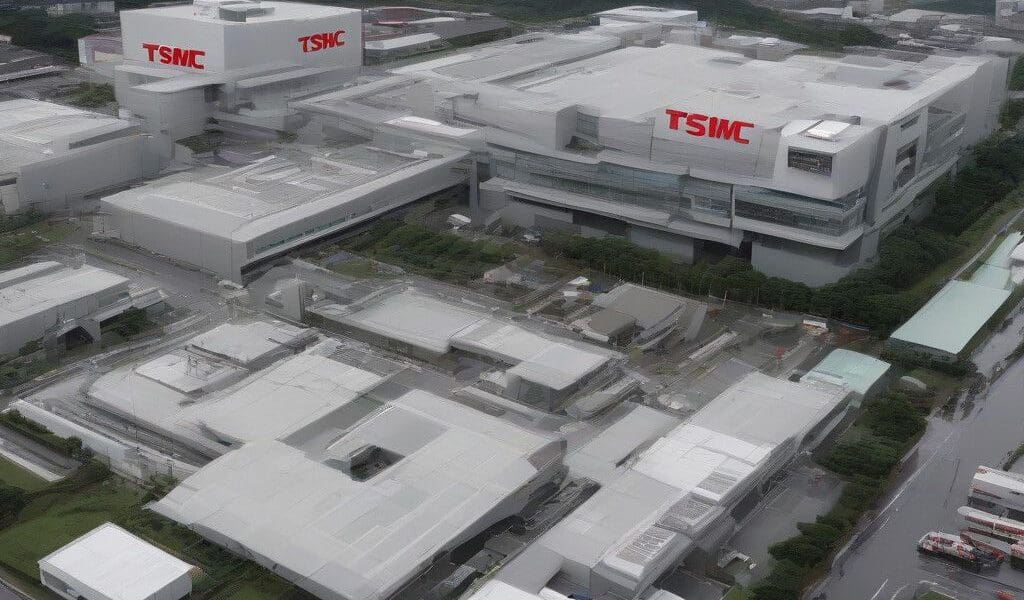How TSMC's Typhoon Preparedness Ensures Business Continuity Amidst Krathon
As Typhoon Krathon approaches Taiwan, the Taiwan Semiconductor Manufacturing Company (TSMC) has activated its robust storm protocols. As the world’s leading contract chipmaker, TSMC has a well-established track record of navigating natural disruptions, and this latest storm is no exception. The company’s operational resilience is critical not only for its business continuity but also for the global supply chain that depends on its semiconductor production.
TSMC’s preparation process, honed through years of experience, showcases the effectiveness of well-planned protocols in mitigating risks associated with severe weather events. These protocols have been developed with careful attention to past occurrences and involve proactive measures that ensure minimal disruption to production.
One critical aspect of TSMC’s preparations includes a comprehensive risk assessment of its facilities and operations. The company identifies vulnerable points and implements necessary countermeasures, such as securing loose outdoor equipment and reinforcing safety procedures across all levels of its workforce. This systematic approach is reflective of TSMC’s commitment to maintaining safety and efficiency, even in the face of natural threats.
The company has informed its stakeholders that it does not expect significant impacts on either production capabilities or business continuity. This confidence stems from TSMC’s historical resilience against previous typhoons, allowing the company to remain a reliable partner for its global clients, including tech giants like Apple and Nvidia.
Furthermore, TSMC’s employees are at the center of its operational strategy. The company emphasizes the importance of communication during a crisis and trains its staff to be well-prepared for emergencies. By fostering a culture of readiness, TSMC ensures that its teams can act swiftly and decisively in response to any operational challenges that may arise during the storm.
Taiwan frequently experiences typhoons, making it essential for local businesses to have storm preparedness ingrained in their operations. TSMC, which has long been aligned with these local practices, serves as a model for other companies in the region. Many other organizations have adopted similar measures, demonstrating a community-wide commitment to safety and business continuity.
In addition to physical preparations, TSMC also leverages technology to enhance its storm response capabilities. The firm employs sophisticated monitoring systems that provide real-time data on weather conditions. This helps decision-makers at TSMC to assess the storm’s trajectory and potential impact on operations swiftly.
Ultimately, TSMC’s proactive approach and stringent protocols contribute significantly to its reputation as a leader in the semiconductor industry. The company not only aims to minimize operational disruptions but also prioritizes the safety of its employees, illustrating a holistic approach to crisis management.
As Typhoon Krathon approaches, the preparations taken by TSMC reflect a broader industry trend towards robust risk management practices amid unpredictable challenges. The semiconductor sector, being a pillar of modern technology, underscores the importance of resilience, adaptability, and preparedness. Such practices are paramount, not only for safeguarding business interests but also for ensuring that essential technologies remain available to consumers worldwide.
By maintaining operational continuity and providing reliable service during severe weather conditions, TSMC helps bolster confidence in supply chains that rely on its semiconductor manufacturing capabilities. As the tech world watches closely, TSMC’s ability to navigate the storm strengthens its position in the market and reaffirms its commitment to its partners and customers alike.








